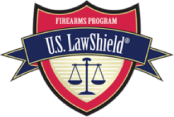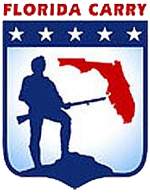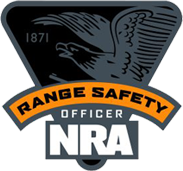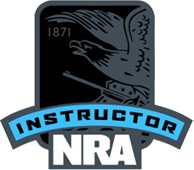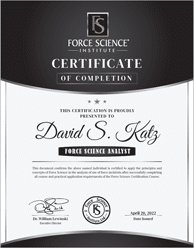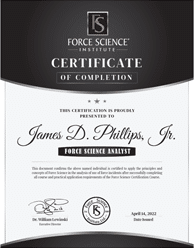Forcible Felonies: What Crimes Justify Self-Defense in Florida?

Forcible Felonies: What Types of Crimes Trigger Self-Defense Rights?
The state of Florida has some of the most favorable self-defense laws in the country. Florida law allows you to Stand Your Ground, imposing no duty to retreat before using defensive force. Florida also gives some extremely powerful protections to people defending themselves in their homes or in their cars under the Castle Doctrine. While these protections are important to know and understand, they are only part of the self-defense equation in the state of Florida. Under the right circumstances, the Castle Doctrine allows for the use of deadly force in the home and the presumption that your life is in danger, self-defense outside the home may require you to show that your fears were reasonable. So what exactly does a person need to fear or anticipate before they can use deadly force in self-defense? Under Section 776.013, Florida Statutes, a person may use deadly force “if he or she reasonably believes that using or threatening to use such force is necessary to prevent imminent death or great bodily harm to himself or herself or another or to prevent the imminent commission of a forcible felony.” This article will focus on the forcible felony part of Florida law.
What is a Forcible Felony?
It is easy enough to imagine what it means to be in fear of imminent death or great bodily harm, but the term forcible felony is not quite as clear on its own. Luckily, Florida law provides not only a definition of a forcible felony, but also a list. The list of forcible felonies includes:
treason; murder; manslaughter; sexual battery; carjacking; home-invasion robbery; robbery; burglary; arson; kidnapping; aggravated assault; aggravated battery; aggravated stalking; aircraft piracy; unlawful throwing, placing, or discharging of a destructive device or bomb; any other felony which involves the use or threat of physical force or violence against any individual.
- 776.08, Florida Statutes. Notice the common theme among the listed crimes. Each crime creates a substantial risk of serious harm to a person. None of these crimes can be said to only effect property. Even a crime like arson, which is the intentional act of setting a dwelling or structure on fire or causing an explosion, is just as likely to kill an innocent person as it is to destroy a building. According to Florida law, a person may use deadly force to prevent any of these crimes. A person acting to prevent a forcible felony does not necessarily need to fear imminent death or great bodily harm for himself, herself, or another person. They only need to reasonably believe the deadly force is necessary to prevent the imminent forcible felony. As you can see, the list is not comprehensive, meaning there can be felonies that are not directly listed here that are still “forcible felonies.”
The Difference Between Felonies and Forcible Felonies
Not all felonies are forcible felonies, and you therefore do not have the right to use deadly force to prevent any felony. For example, you absolutely could not use a firearm to stop somebody from committing felony tax evasion. The line is not always quite as clear though. You may have noticed that the list above includes the crime of robbery. However, it does not include theft. Both theft and robbery involve primarily taking a person’s money or property with the intent to deprive them of it. In simple terms, both involve stealing. However, stealing is only robbery if “in the course of the taking there is the use of force, violence, assault, or putting in fear.” § 812.13, Florida Statutes. Theft does not necessarily involve force or the threat of force. The difference here is key. As you would expect, the forcible felony involves the use of force or the threat of force. As stated above, forcible felonies are crimes which put human life at risk. Any force used to stop a robbery is used to protect the person, not the property being stolen.
Forcible Felonies Not Listed Under § 776.08
You may have noticed that the list of forcible felonies is not a comprehensive list. The section ends with the phrase, “any other felony which involves the use or threat of physical force or violence against any individual.” This tells us that the crimes listed are not the only forcible felonies. In fact, any felony can become a forcible felony if the person committing it uses or threatens force against another person. One example is the crime of false imprisonment. This is not a crime involving the police making an unlawful arrest. Rather, false imprisonment occurs when a person, “forcibly, by threat, or secretly confining, abducting, imprisoning, or restraining another person without lawful authority and against her or his will.” § 787.02, Florida Statutes. This felony does not always require force to be used or threatened, as the definition includes “secretly” confining a person. However, if the person committing false imprisonment does use or threaten force to do it, the crime would become a forcible felony under the catch-all phrase at the end of the definition.
The Forcible Felony Must Be Imminent
Deadly force absolutely cannot be used against a person who is merely planning to commit a forcible felony in the future. While you can certainly contact the police if you believe somebody is going to commit a crime like robbery in the future, Florida law does not permit you to use deadly force to prevent the future crime. The word “imminent” means the crime is about to happen immediately. Gaffney v. State, 742 So. 2d 358 (Fla. 2d DCA 1999). In other words, the crime is happening in the next few moments or has already started happening. Deadly force also may not be used after the forcible felony is completed. Remember, deadly force is never permitted as a means to get revenge. It is not there for a person to get even or to make sure the criminal doesn’t have a chance to commit more crimes in the future. Deadly force is for the immediate protection of human life. If the forcible felony is over and there is no more immediate danger, you may not pursue the criminal or attempt to use deadly force against them.
More results...
Get in touch

"*" indicates required fields
Copyright © 2022-2025 The Firearm Firm All rights reserved.
